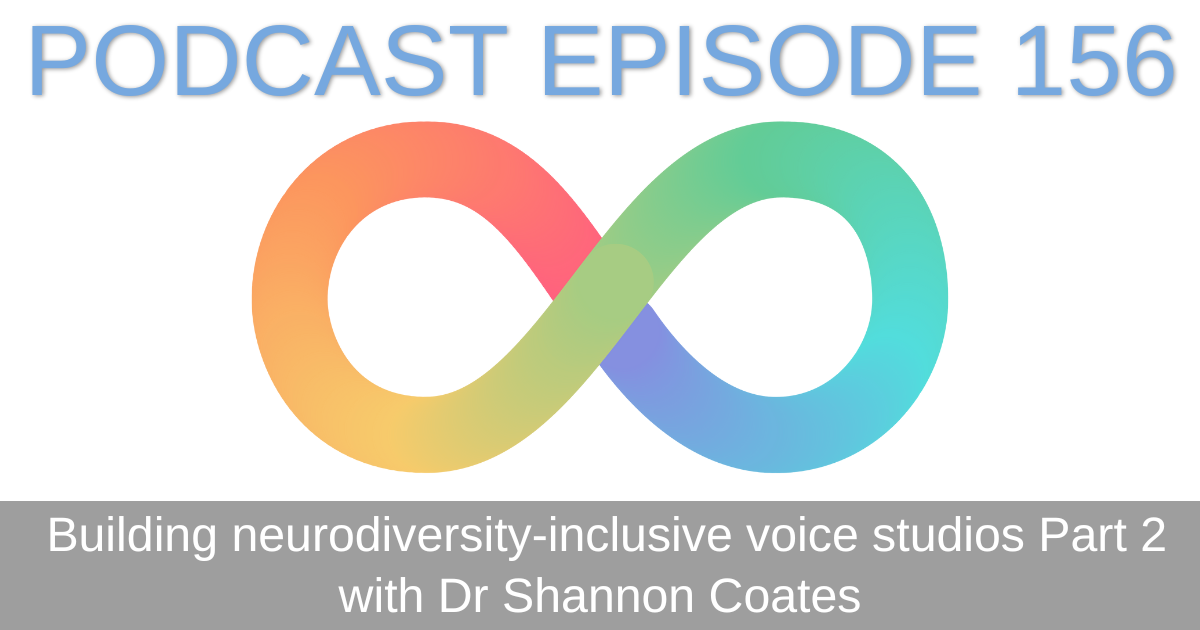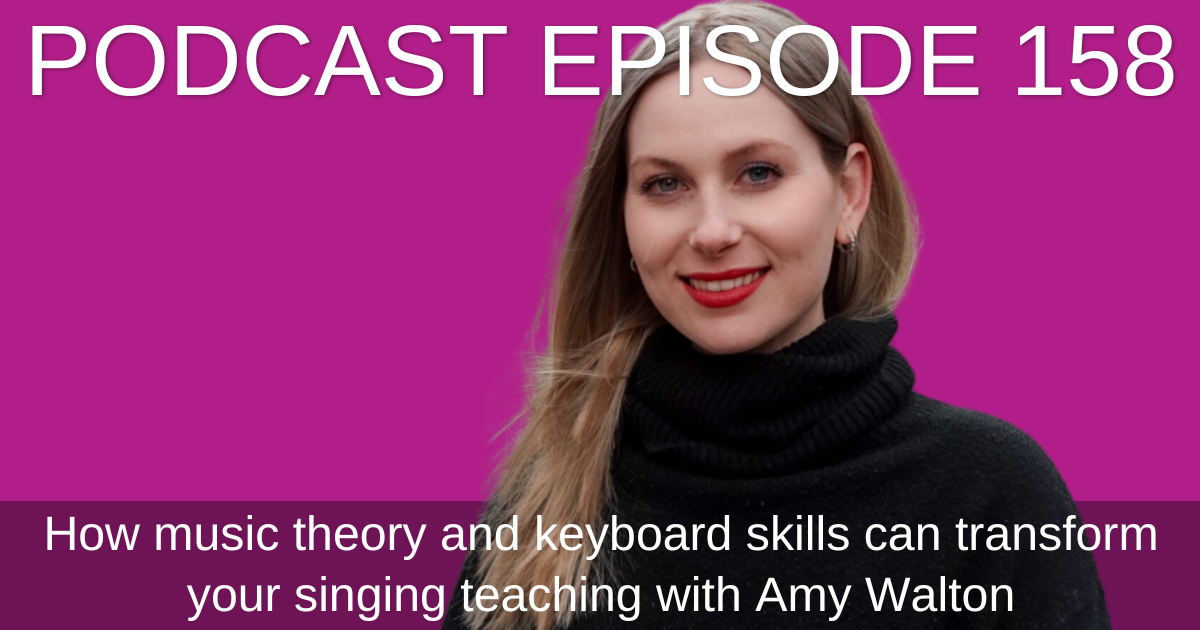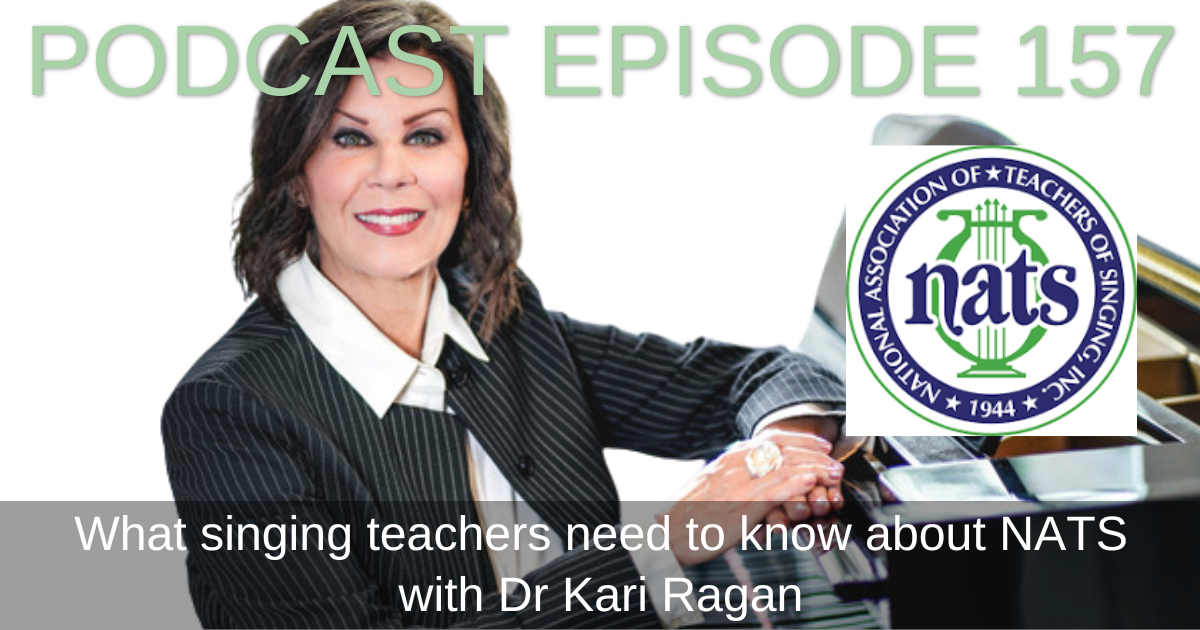Dr Shannon Coates is with us for part two of this discussion on building neurodiversity inclusive voice studios and we’re picking up just where we left off last week. Shannon is a singer, voice teacher, and educator who began developing training and educational resources specifically for independent voice teachers. She works with smaller groups of teachers in an eight-month training called the VoicePed UnDegree that runs each year. This week, Shannon helps us to understand the terminology of neurodiversity, and we start to explore how we can be inclusive for the likes of dyslexia and ADHD.
KEY TAKEAWAYS
- In the classroom, autistic individuals may struggle with sensory overload, heightened sensitivities, difficulty filtering stimuli, hyperfocus, and executive functioning challenges. They may show their overwhelm with a perceived lack of attention or disengagement.
- Some autistic individuals benefit from physical guidance and tactile feedback to understand and replicate movements accurately. Singing teachers may gently guide their students’ hands, arms, or facial muscles to demonstrate proper technique and expression. This hands-on approach provides sensory input that can enhance the learning experience and help autistic singers internalise correct movements.
- Autistic individuals often thrive in environments with clear structure and predictable routines. Singing teachers can establish a consistent lesson structure with clearly defined goals, activities, and transitions. Providing a visual schedule or checklist can help autistic singers anticipate what to expect during each session, reducing anxiety and promoting a sense of security.
- Singing teachers can support autistic individuals’ stimming by normalizing it, recognizing individual patterns, providing a sensory-friendly environment, incorporating movement and breaks, using stimming as a teaching tool, and offering positive reinforcement.
BEST MOMENTS
“I cannot focus on what you’re asking me to do, my senses are in complete overwhelm”
“The things we do in the studio to affirm neurodiversity do not just affirm neurodivergent singers, they affirm all singers”
“There is a lifetime of trying to figure out the rules because our social rules are based on reading other people”
“Clarity is kindness”
EPISODE RESOURCES
Guest Website:
Social Media:
- Instagram: @voiceped
- Facebook: @VoiceAndTheArtofTeaching
Relevant Links & Mentions:
- (Podcast) Singing Teachers Talk Podcast Ep.155 Part One: Building Neurodiversity-Inclusive Voice Studios with Dr Shannon Coates
- (Podcast) Singing Teachers Talk: Ep.104 Teaching Singers with ADHD with Colin McGee
- Lewis Capaldi
- Nikki Loney & Full Voice Music: fullvoicemusic.com
- (Podcast) Singing Teachers Talk Podcast Ep.139 Understanding Play-Based Learning for Children and Young Adult Singers with Nikki Loney
ABOUT THE GUEST
Shannon is a singer, voice teacher, and educator with nearly two decades of experience running a successful independent voice studio. She develops training and resources for voice teachers worldwide, focusing on inclusivity and neurodiversity. Shannon holds three vocal performance degrees from the University of Toronto and offers subject-specific training, including Neurodiversity-Affirming VoicePed and Contemporary Voice. She promotes best practices in teaching and advocates for inclusive voice spaces through social media.






